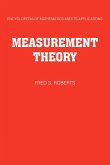Psychological Perspectives on Justice
Theory and Applications
Herausgeber: Mellers, Barbara A.; Barbara a., Mellers; Baron, Jonathan
Psychological Perspectives on Justice
Theory and Applications
Herausgeber: Mellers, Barbara A.; Barbara a., Mellers; Baron, Jonathan
- Broschiertes Buch
- Merkliste
- Auf die Merkliste
- Bewerten Bewerten
- Teilen
- Produkt teilen
- Produkterinnerung
- Produkterinnerung
Explores how the distribution of costs and benefits determine our intuition about fairness to provide a balanced look at the psychology of justice.
Andere Kunden interessierten sich auch für
![Critical Perspectives on Social Justice in Speech-Language Pathology Critical Perspectives on Social Justice in Speech-Language Pathology]() Critical Perspectives on Social Justice in Speech-Language Pathology175,99 €
Critical Perspectives on Social Justice in Speech-Language Pathology175,99 €![Successful Aging Successful Aging]() B. Baltes / Margret Baltes (eds.)Successful Aging76,99 €
B. Baltes / Margret Baltes (eds.)Successful Aging76,99 €![Explaining Technical Change Explaining Technical Change]() Jon ElsterExplaining Technical Change51,99 €
Jon ElsterExplaining Technical Change51,99 €![The Uses of Literacy in Early Mediaeval Europe The Uses of Literacy in Early Mediaeval Europe]() Rosamond McKitterick (ed.)The Uses of Literacy in Early Mediaeval Europe63,99 €
Rosamond McKitterick (ed.)The Uses of Literacy in Early Mediaeval Europe63,99 €![Measurement Theory Measurement Theory]() Fred S. RobertsMeasurement Theory97,99 €
Fred S. RobertsMeasurement Theory97,99 €![Wealth in America Wealth in America]() Lisa KeisterWealth in America26,99 €
Lisa KeisterWealth in America26,99 €!['Tis Nature's Fault 'Tis Nature's Fault]() 'Tis Nature's Fault52,99 €
'Tis Nature's Fault52,99 €-
-
Explores how the distribution of costs and benefits determine our intuition about fairness to provide a balanced look at the psychology of justice.
Hinweis: Dieser Artikel kann nur an eine deutsche Lieferadresse ausgeliefert werden.
Hinweis: Dieser Artikel kann nur an eine deutsche Lieferadresse ausgeliefert werden.
Produktdetails
- Produktdetails
- Verlag: Cambridge University Press
- Seitenzahl: 364
- Erscheinungstermin: 31. Juli 2008
- Englisch
- Abmessung: 229mm x 152mm x 21mm
- Gewicht: 591g
- ISBN-13: 9780521089982
- ISBN-10: 0521089980
- Artikelnr.: 25445606
- Herstellerkennzeichnung
- Libri GmbH
- Europaallee 1
- 36244 Bad Hersfeld
- gpsr@libri.de
- Verlag: Cambridge University Press
- Seitenzahl: 364
- Erscheinungstermin: 31. Juli 2008
- Englisch
- Abmessung: 229mm x 152mm x 21mm
- Gewicht: 591g
- ISBN-13: 9780521089982
- ISBN-10: 0521089980
- Artikelnr.: 25445606
- Herstellerkennzeichnung
- Libri GmbH
- Europaallee 1
- 36244 Bad Hersfeld
- gpsr@libri.de
1. Introductory remarks; Part I. Psychological Perspectives: 2. Equality as
a decision heuristic David Messick; 3. Two insights occasioned by attempts
to pin down the equity formula Richard Harris; 4. Judgments of justice Maya
Bar-Hillel and Menahem Yaari; Part II. Economic Perspectives: 5. Justice in
organised groups: comparing the self-interest and social identity
perspectives Tom Tyler and Robyn Dawes; 6. Heuristics and biases in equity
judgments: a utilitarian approach Jonathan Baron; 7. Tradeoffs in fairness
and preference judgments Lisa Ordoñez and Barbara Mellers; 8. Information,
fairness, and efficiency in bargaining Colin Camerer and George
Loewenstein; Part III. Variations in Perspectives of Justice: 9. The
unfolding of justice: a developmental perspective on reward allocations
Colleen Moore, Sheri E. Hembree, and Robert D. Enright; 10. Of Ants and
Grasshoppers: the political psychology of allocating scarce resources Linda
Skitka and Philip E. Tetlock; 11. Liberal and conservative approaches to
justice: conflicting psychopolitical perspectives Philip E. Tetlock and
Gregory Mitchell; Part IV. Policy Perspectives: Justice and the allocation
of scarce resources Jon Elster; 12. Models of equity in public risk Rakesh
Sarin; 13. Fairness of distributions of risks with applications to
Antarctica Ivy Broder and Robin Keller; Part V: Postscript.
a decision heuristic David Messick; 3. Two insights occasioned by attempts
to pin down the equity formula Richard Harris; 4. Judgments of justice Maya
Bar-Hillel and Menahem Yaari; Part II. Economic Perspectives: 5. Justice in
organised groups: comparing the self-interest and social identity
perspectives Tom Tyler and Robyn Dawes; 6. Heuristics and biases in equity
judgments: a utilitarian approach Jonathan Baron; 7. Tradeoffs in fairness
and preference judgments Lisa Ordoñez and Barbara Mellers; 8. Information,
fairness, and efficiency in bargaining Colin Camerer and George
Loewenstein; Part III. Variations in Perspectives of Justice: 9. The
unfolding of justice: a developmental perspective on reward allocations
Colleen Moore, Sheri E. Hembree, and Robert D. Enright; 10. Of Ants and
Grasshoppers: the political psychology of allocating scarce resources Linda
Skitka and Philip E. Tetlock; 11. Liberal and conservative approaches to
justice: conflicting psychopolitical perspectives Philip E. Tetlock and
Gregory Mitchell; Part IV. Policy Perspectives: Justice and the allocation
of scarce resources Jon Elster; 12. Models of equity in public risk Rakesh
Sarin; 13. Fairness of distributions of risks with applications to
Antarctica Ivy Broder and Robin Keller; Part V: Postscript.
1. Introductory remarks; Part I. Psychological Perspectives: 2. Equality as
a decision heuristic David Messick; 3. Two insights occasioned by attempts
to pin down the equity formula Richard Harris; 4. Judgments of justice Maya
Bar-Hillel and Menahem Yaari; Part II. Economic Perspectives: 5. Justice in
organised groups: comparing the self-interest and social identity
perspectives Tom Tyler and Robyn Dawes; 6. Heuristics and biases in equity
judgments: a utilitarian approach Jonathan Baron; 7. Tradeoffs in fairness
and preference judgments Lisa Ordoñez and Barbara Mellers; 8. Information,
fairness, and efficiency in bargaining Colin Camerer and George
Loewenstein; Part III. Variations in Perspectives of Justice: 9. The
unfolding of justice: a developmental perspective on reward allocations
Colleen Moore, Sheri E. Hembree, and Robert D. Enright; 10. Of Ants and
Grasshoppers: the political psychology of allocating scarce resources Linda
Skitka and Philip E. Tetlock; 11. Liberal and conservative approaches to
justice: conflicting psychopolitical perspectives Philip E. Tetlock and
Gregory Mitchell; Part IV. Policy Perspectives: Justice and the allocation
of scarce resources Jon Elster; 12. Models of equity in public risk Rakesh
Sarin; 13. Fairness of distributions of risks with applications to
Antarctica Ivy Broder and Robin Keller; Part V: Postscript.
a decision heuristic David Messick; 3. Two insights occasioned by attempts
to pin down the equity formula Richard Harris; 4. Judgments of justice Maya
Bar-Hillel and Menahem Yaari; Part II. Economic Perspectives: 5. Justice in
organised groups: comparing the self-interest and social identity
perspectives Tom Tyler and Robyn Dawes; 6. Heuristics and biases in equity
judgments: a utilitarian approach Jonathan Baron; 7. Tradeoffs in fairness
and preference judgments Lisa Ordoñez and Barbara Mellers; 8. Information,
fairness, and efficiency in bargaining Colin Camerer and George
Loewenstein; Part III. Variations in Perspectives of Justice: 9. The
unfolding of justice: a developmental perspective on reward allocations
Colleen Moore, Sheri E. Hembree, and Robert D. Enright; 10. Of Ants and
Grasshoppers: the political psychology of allocating scarce resources Linda
Skitka and Philip E. Tetlock; 11. Liberal and conservative approaches to
justice: conflicting psychopolitical perspectives Philip E. Tetlock and
Gregory Mitchell; Part IV. Policy Perspectives: Justice and the allocation
of scarce resources Jon Elster; 12. Models of equity in public risk Rakesh
Sarin; 13. Fairness of distributions of risks with applications to
Antarctica Ivy Broder and Robin Keller; Part V: Postscript.








